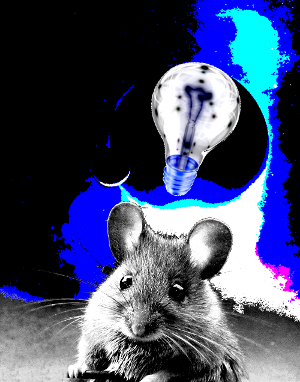Self-awareness spotted in thinking animals
 Recent studies have found that human are probably not the only self-aware animals.
Recent studies have found that human are probably not the only self-aware animals.
Research from the UK has found that humans and other animals capable of mentally simulating environments require at least a primitive sense of self.
It suggests that any animal that can simulate environments must have a form of self-awareness.
Often viewed as one of mankind’s defining characteristics, the study strongly suggests that self-awareness is not unique to our species.
In fact, it appears to be common among animals.
“The study’s key insight is that those animals capable of simulating their future actions must be able to distinguish between their imagined actions and those that are actually experienced,” said study co-author Professor Thomas Hills.
The researchers were inspired by work conducted in the nineteen-fifties on maze navigation in rats.
It was observed that rats, at points in the maze that required them to make decisions on what they would do next, often stopped and appeared to deliberate over their future actions.
Neuroscience research has since found that at these ‘choice points’, rats and other vertebrates activate regions of their brain that appear to simulate choices and their potential outcomes.
“Our first aim was to understand the recent neural evidence that animals can project themselves into the future,” Professor Hills said.
The team developed two descriptive models to explain the process behind the rats’ deliberation.
One model, the Naive Model, assumed that animals inhibit action during simulation.
But they believe that this model would create false memories, as the animal would be unable to tell the differences between real and imagined actions.
A second, the Self-actuating Model, solves this problem by having animals ‘tagging’ real versus imagined experience.
The researchers called this tagging the ‘primal self’.
“What we wound up understanding is that, in order to do so, they must have a primal sense of self,” Professor Hills said.
“As such, humans must not be the only animal capable of self-awareness.
“Indeed, the answer we are led to is that anything, even robots, that can adaptively imagine themselves doing what they have not yet done, must be able to separate the knower from the known.”







 Print
Print